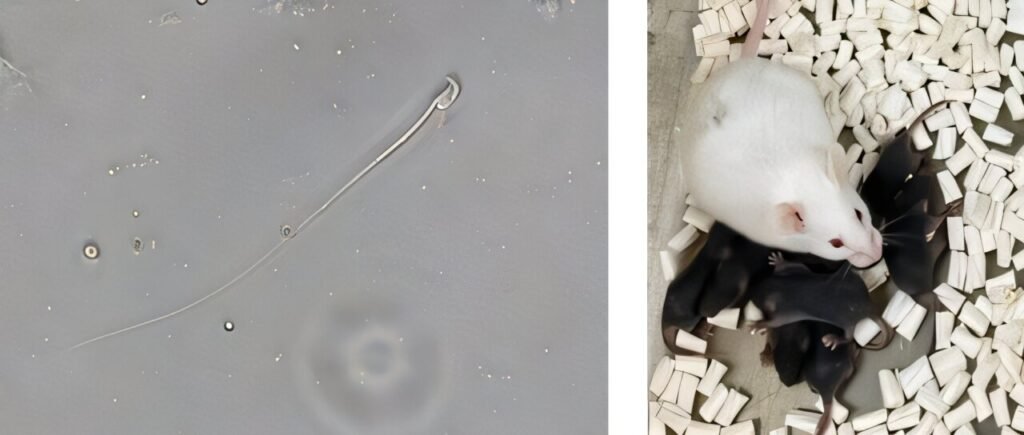Male infertility is a common issue affecting millions of couples worldwide, with genetic conditions like non-obstructive azoospermia (NOA) posing a significant challenge for treatment. However, a groundbreaking study conducted by researchers at the University of Osaka and Baylor College of Medicine has introduced a novel approach to combat NOA and restore sperm production in a mouse model.
Using lipid nanoparticles (LNPs) to deliver mRNA targeting specific testicular genes, the researchers successfully rejuvenated spermatogenesis and achieved the birth of viable offspring. This innovative treatment not only led to the birth of healthy, fertile offspring but also highlighted the potential for gene-informed therapies in the field of infertility.
Published in the prestigious journal Proceedings of the National Academy of Sciences, the study sheds light on the limitations of current treatments for NOA, a condition characterized by the absence of sperm in the ejaculate despite normal hormonal levels. By focusing on a NOA mouse model with a genetic deficiency causing meiotic arrest, the researchers injected LNPs into the rete testis to deliver mRNA broadly.
The results were promising, with the mRNA expression lasting around five days and reaching approximately 55% of tubules. By biasing the expression towards germ cells using miRNA target sequences, the researchers were able to resume meiotic progression in Pdha2 knockout mice, leading to the production of round spermatids and ultimately sperm. Intracytoplasmic sperm injection (ICSI) using testicular sperm yielded healthy offspring with no significant genomic alterations.
This study represents a significant advancement in the field of male infertility treatment, offering a safer and non-integrating alternative to traditional gene therapies. By effectively restoring spermatogenesis in a NOA mouse model, the researchers have provided hope for individuals with untreatable infertility conditions.
Professor Masahito Ikawa, the senior author of the study, emphasized the importance of using fully synthetic LNPs for mRNA delivery to minimize genome integration concerns. Professor Martin M. Matzuk highlighted the implications of the findings for future research aimed at treating various forms of male infertility.
In conclusion, the study’s findings open up new possibilities for treating male infertility caused by genetic defects. By harnessing the power of LNPs and mRNA delivery, researchers have demonstrated a promising avenue for addressing complex reproductive challenges and offering hope to couples struggling with infertility.


